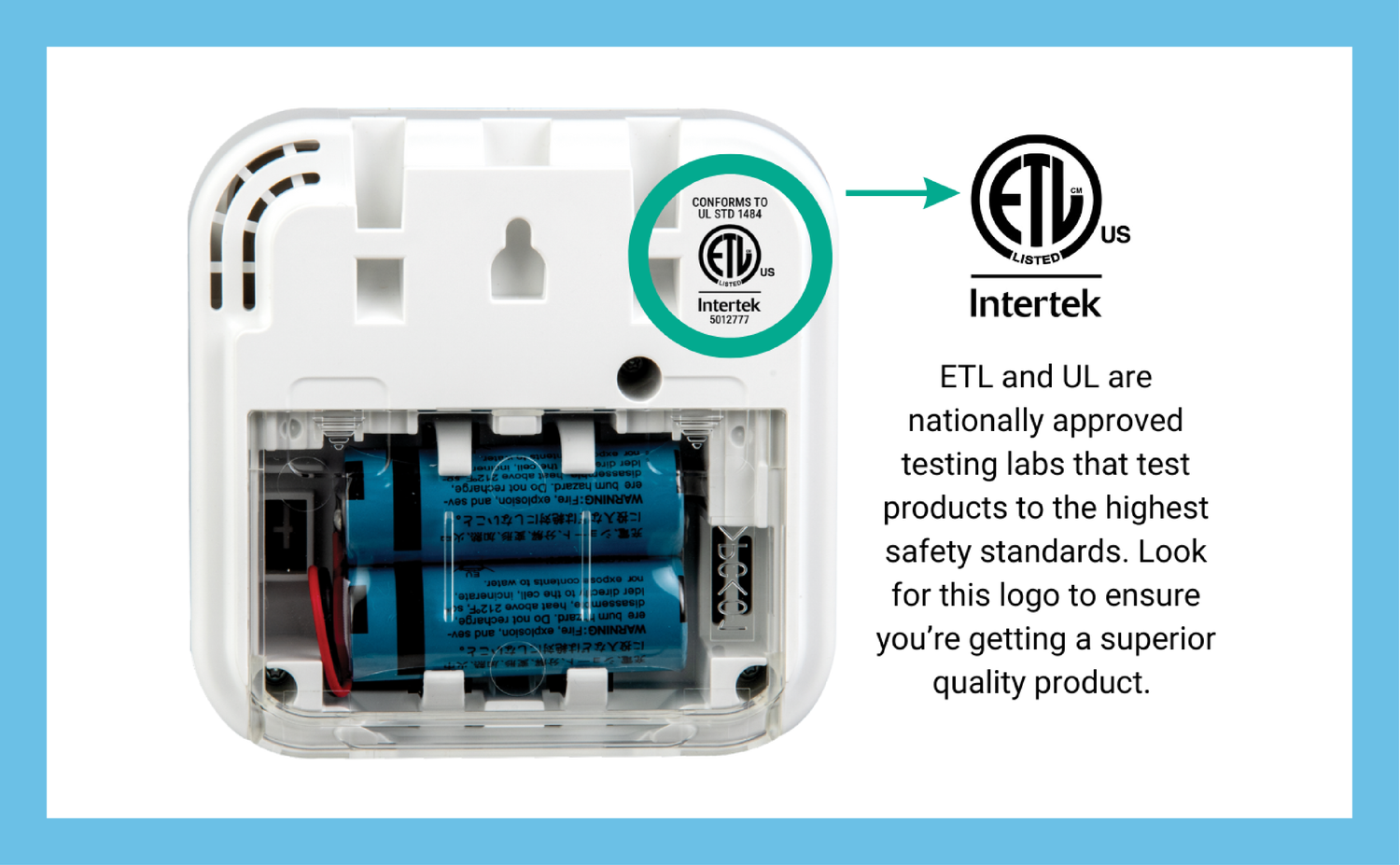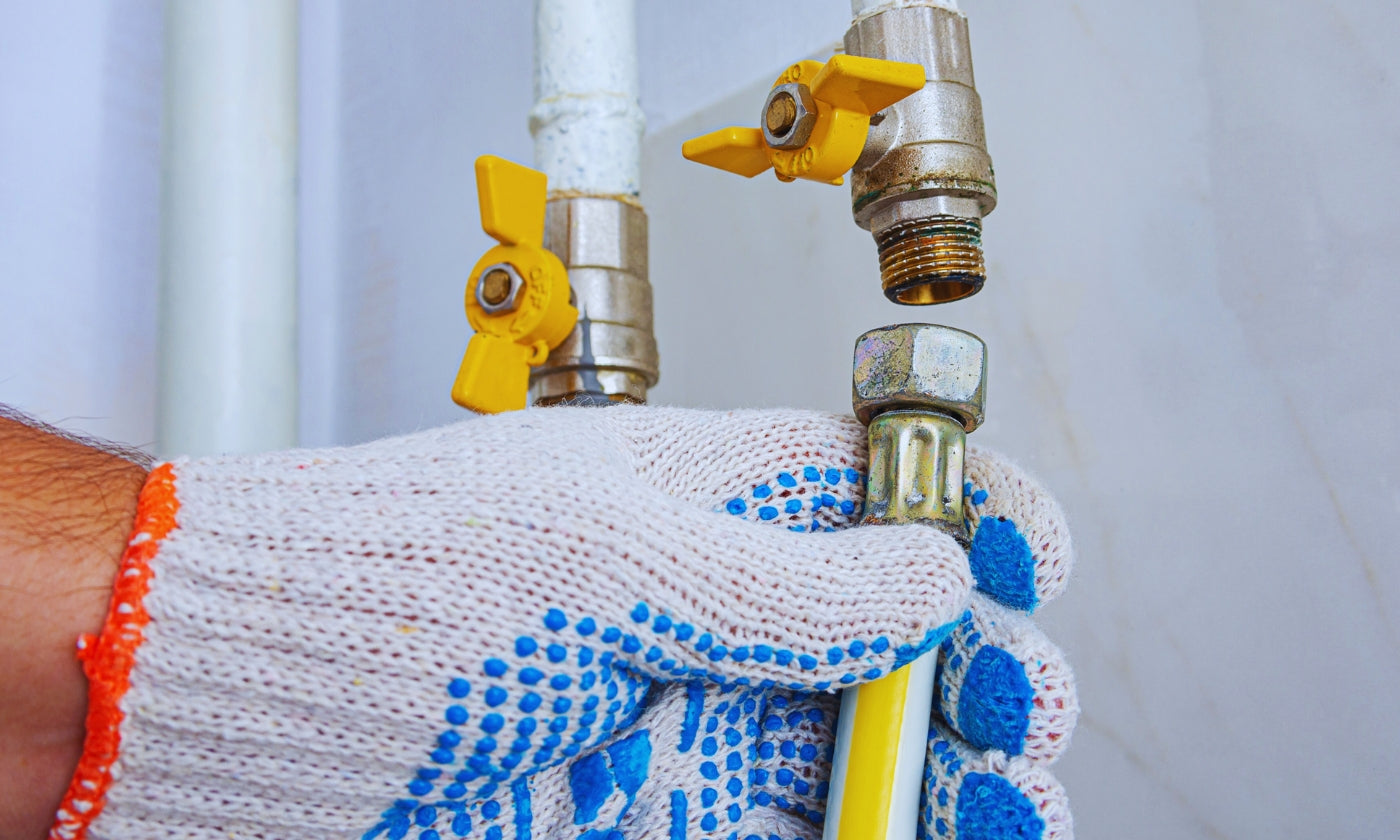Do you ever wonder if you’re doing enough to protect your home? One potential safety risk often overlooked is the type of natural gas appliances people use daily.
While natural gas has an added odorant to alert people of danger, a slow or minor leak can be harder to detect and cause serious problems to your health. This makes a natural gas detector essential for adding an extra layer of security around your home and loved ones. Some of the primary natural gas alarm must-haves include:
- Battery Life: Detectors come in many forms. They can be powered by a battery pack, plug-in, or hardwired into your home's electrical system. Natural gas leak detectors also come with an expiration date (usually 5-10 years), so replacing them beforehand is crucial.
- Sensors and alerts: You should check whether the sensors have enough sensitivity. The greater the sensitivity, the easier it is to find the gas leak. If a leak does occur, some devices can send data through an app to your smartphone via WiFi or Bluetooth to let you monitor the situation even if you’re not there.
- Alarm type: The alarm should be loud enough to alert you even if you’re sleeping. Consider a natural gas detector with a minimum of 85 decibels (dB) and a light to warn deaf and hard-of-hearing people.
It’s vital to know the important features that make these alarm systems so crucial for your home.
The Importance of UL 1484 and a 10% LEL

UL 1484 refers to a set of safety standards established by Underwriters Laboratories (UL) for residential electrically operated gas detectors intended for installation in residential occupancies and designed to detect flammable gases such as propane and natural gas. To meet the UL 1484 standards, a gas detector must pass specific requirements, including detection sensitivity, response time, and accuracy. Compliance with UL 1484 certification is mandatory in some states in the US and Canada. It is highly recommended to ensure your alarm has the UL1484 Standard.
A 10% Lower Explosive Limit (LEL) is a crucial safety benchmark for natural gas detectors. The LEL represents the minimum combustible gas or vapor concentration that can ignite and cause an explosion in the presence of an ignition source. When the concentration of natural gas in the air reaches 10% LEL, there is a risk of explosion if an ignition source is present, such as a spark or flame.
The Difference Between a 10% LEL Threshold and a 25% LEL Threshold
Detectors are designed to warn individuals whenever the combustible gas is present in the environment at levels around 10% LEL. An LEL threshold signifies when combustible gas is present in the environment and at what levels. At a 10% threshold, the gas concentration has reached 10% of its lower explosive limit, but it is not yet explosive. Conversely, the 25% LEL threshold is considered a high alarm or distress signal, which means that the gas concentration has increased to a not-yet explosive level but could be potentially dangerous.
Most natural gas alarms come with factory default settings of Low 10% and High 25%, so it is important to have a gas detector that can accurately measure the concentration of natural gas in the air and set the alarm threshold accordingly. A natural gas detector that alarms at 10% LEL will provide 11 minutes more escape time (on average) than products that sound at 25% LEL. Early gas leak detection helps save lives and protect property.
DeNova Detect natural gas alarms use superior patented sensor technology to detect a gas leak 11 minutes sooner than the typical competitors’ alarm. These natural gas detectors are the only residential battery-powered natural gas alarm in the U.S. with a six-to-ten-year battery and product service life, depending on the model. Every second counts when it comes to your safety, so picking the right alarm is a must.
Going Above and Beyond

To provide the best protection against potential natural gas hazards, ensure your natural gas alarm meets or exceeds the UL 1484 standard. This standard specifies the testing and performance criteria for these gas detectors, including their sensitivity to detect gases, false alarm rates, and durability over time. That means meeting or exceeding this standard ensures that your natural gas alarm has been tested and evaluated for its ability to accurately detect flammable gases, providing reliable and accurate warnings to help protect occupants from potential hazards.
Related post: How to Make Your Smart Home More Intelligent With the Right Natural Gas Alarm
Easily protect your home with DeNova Detect natural gas alarms, the best natural gas detector for your needs. Investing in the right smart home device gives you guaranteed peace of mind 365 days a year - 24/7.





Leave a comment
This site is protected by hCaptcha and the hCaptcha Privacy Policy and Terms of Service apply.